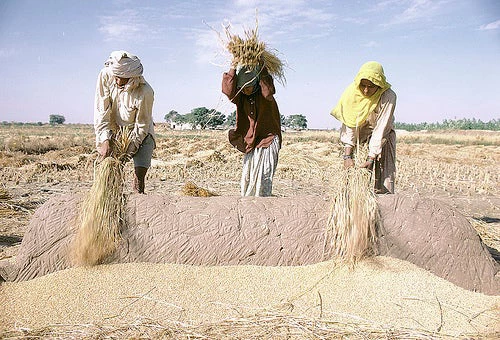
India is swimming in grain these days, thanks to the Green Revolution, bumper crops and food security policies that encourage farmers to grow more. But unfortunately, India’s ability to store and manage its surplus grain hasn’t kept pace with production. The Wall Street Journal reports that state-run warehouses have a capacity of 63 million metric tons, while grain stocks are expected to be 75 million. To make things worse, many existing storage facilities are low-quality structures that aren’t up to the job. This means millions of tons of grain could be lost through exposure, deterioration and pests—bad news in a country of 1.2 billion with widespread hunger and an estimated poverty rate of 32 percent.
Fortunately, India’s government has been open to creative solutions to its looming food storage crisis. An article in Handshake, a journal on public-private partnerships, describes an innovative pilot where a private company was awarded a 30-year concession to build and manage modern silos in Punjab, India’s breadbasket. LT Foods Limited, a leading Indian rice processor and distributor, won the concession in a transparent bidding process to build and manage a modern, 50,000 metric ton grain storage facility. Although the costs to government will be higher, they will be offset by reduced spoilage from existing storage methods.
The new silos have been operational since 2011 and are working well, according to Neeraj Gupta of IFC, which advised the government on the transaction. The model’s impact has been far-reaching—the government has undertaken reforms to make it easier for the private sector to participate in grain storage, and plans to replicate the model elsewhere in India. Even India’s neighbors have taken note—Pakistan recently launched a similar initiative for a 600,000 metric ton facility. This public-private partnership may not solve the storage crisis problems this year, but it’s set the stage for a long-term solution.
Further reading: Handshake: Food & PPPs


Join the Conversation